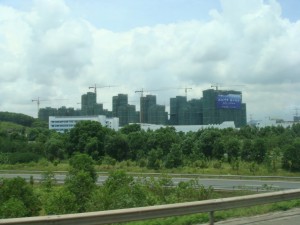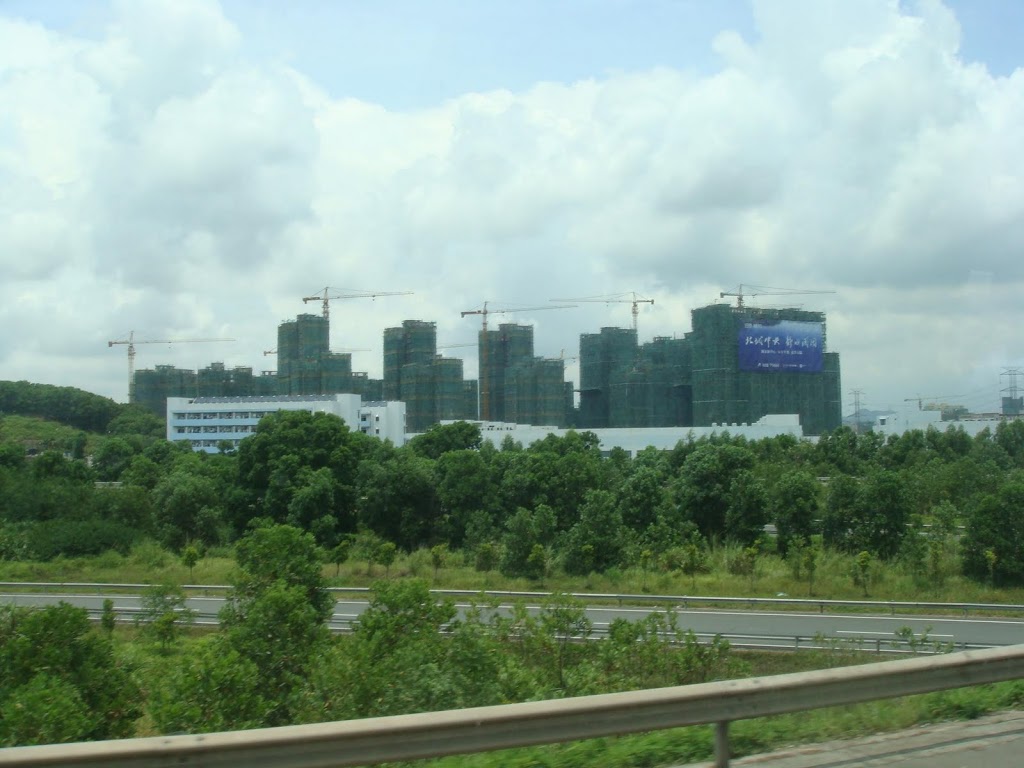The Chinese word for eclipse translates roughly to ‘Moon eats sun’. The entire school had the morning off to watch the twenty-minute event, which was only visible on this side of the world (a cool animation of the trajectory can be found
here). We stared at the disappearing sun through thick layers of colored cellophane, which I’m pretty sure is completely insufficient for avoiding retinal damage.
This didn’t seem to be an issue. In general, care for the future seems to be in short supply here. From toilet paper to computers, everything is expendable. Toilet ‘paper’ is plastic-based, which means it can’t be flushed or recycled, but is carted off in loads of foul-smelling garbage. Electronics are routinely fried by power surges, but they are replaced instead of repaired. Merchants sell fake or faulty goods – admittedly at rock-bottom prices – because the chance of any one consumer coming back to a store repeatedly is small: there is such a multiplicity of goods, and people are so often on the move, that courting consumer confidence hardly seems worth the effort.
But I’m not telling the full story. Of course some people settle, and these people build up tremendously important networks. Anyone who has tried to do business in China will tell you about the importance of
guanxi, connections. I’d always thought of China as an almost obsessively meritocratic culture – test after test, heirarchy into heirarchy. I’ve been surprised to hear people say that top government positions, business contracts, and even University admissions are not earned, but traded.
The supervisor at my school has close guanxi with a DVD seller at the local mall, where she took the English teachers last weekend. The DVDs, which were retailing for around $3, were reduced to 80 cents when she was standing next to the cashier.
I took advantage of the discount to buy Sunshine, the mostly overlooked movie Danny Boyle made between 28 Days Later and Slumdog Millionaire. Boyle manages to take an absurd premise (team of scientist/astronauts on a mission to reignite the sun) with predictable plot development (they go crazy under the pressure), throw in a sort of undead monster (he’s good at this – see 28 Days Later), and turn it into one of the most compelling films since Apocolypse Now, which happens to feature an absurd premise (soldiers sent into the jungle to kill a renegade officer), predictable plot development (they go crazy under the pressure), and a half-dead monster-human (Brando, how little we knew ye).
I first saw Apocolypse Now in London. When I returned the movie to a rental place on Earl’s Court Road, the wiry-haired clerk looked at the jacket and laughed.
‘That’s my movie,’ she said.
‘What do you mean, your movie?’
‘I was the music producer on Apocolypse Now. I chose all the music.’
I was impressed. ‘How was that? I mean – what was it like?’
The clerk smiled and waved her hand, as if wafting away the ghost of ganja past. ‘It was great. We all just sat around, smoked a lot of spliffs, and listened to a lot of groovy music.’
I wanted to ask her why she was now a clerk in a movie rental place in London, but thought it might be rude. It does make me feel perversely better about being a soon-to-be-unemployed Harvard grad. One more week of teaching! If I can just figure out a way to teach a class of lower-intermediate English level kids about sustainability…

